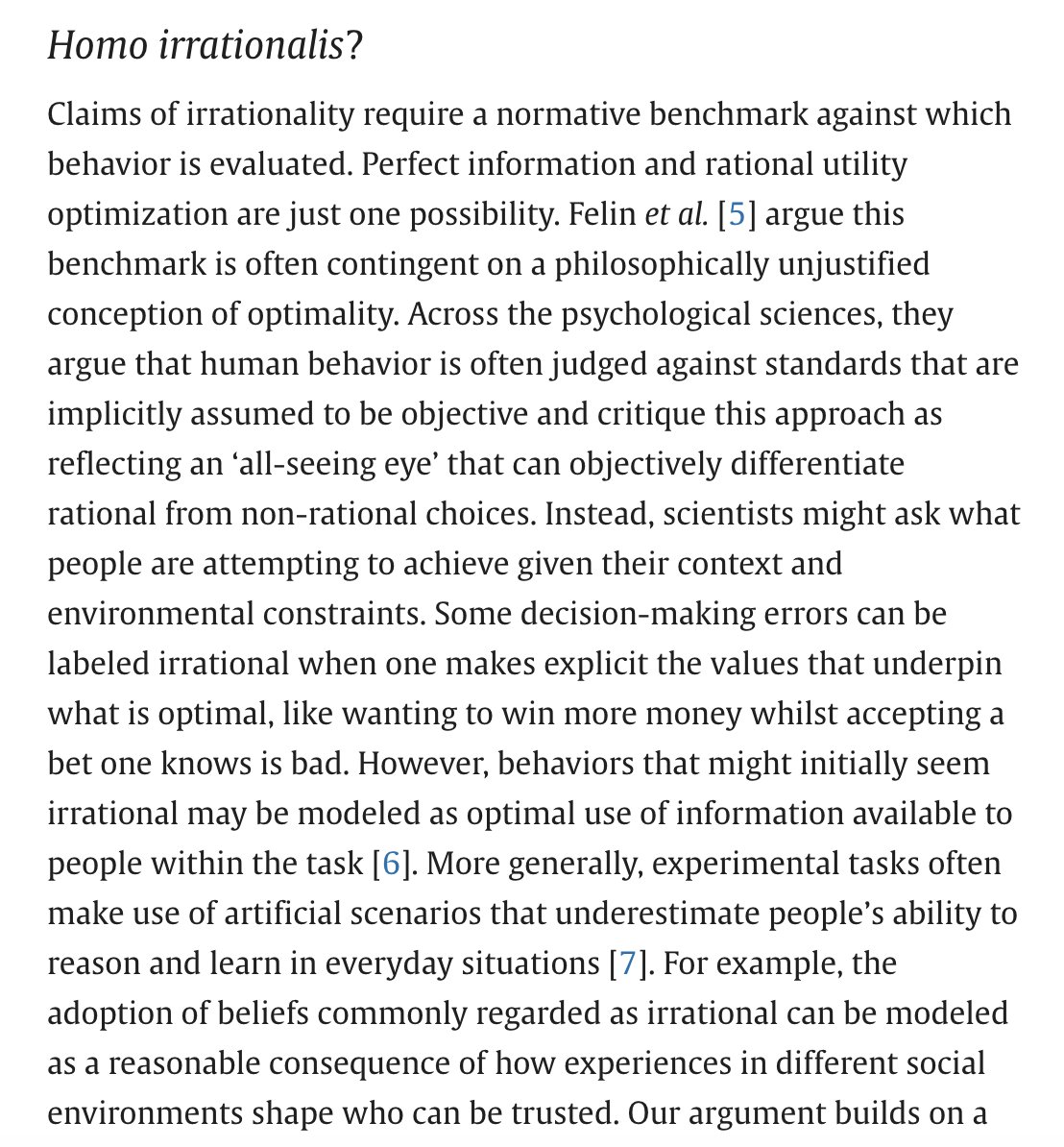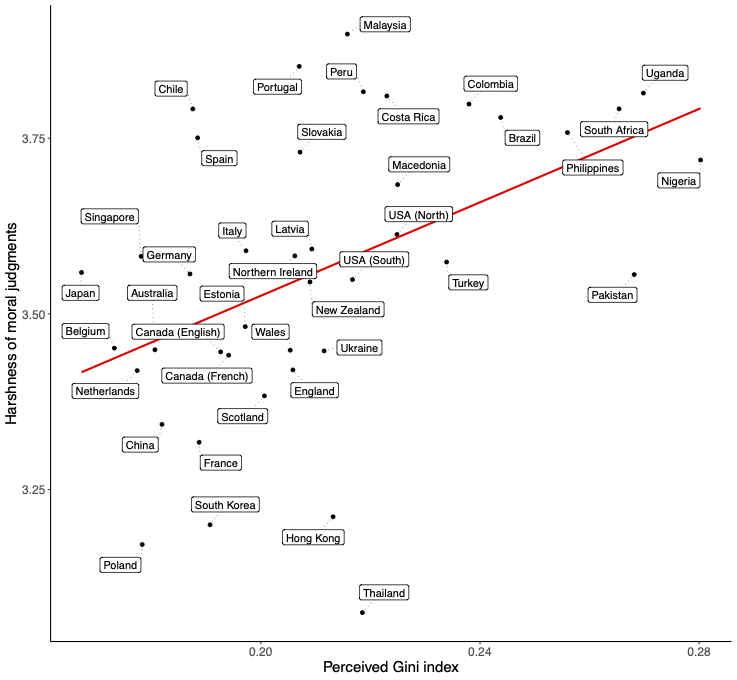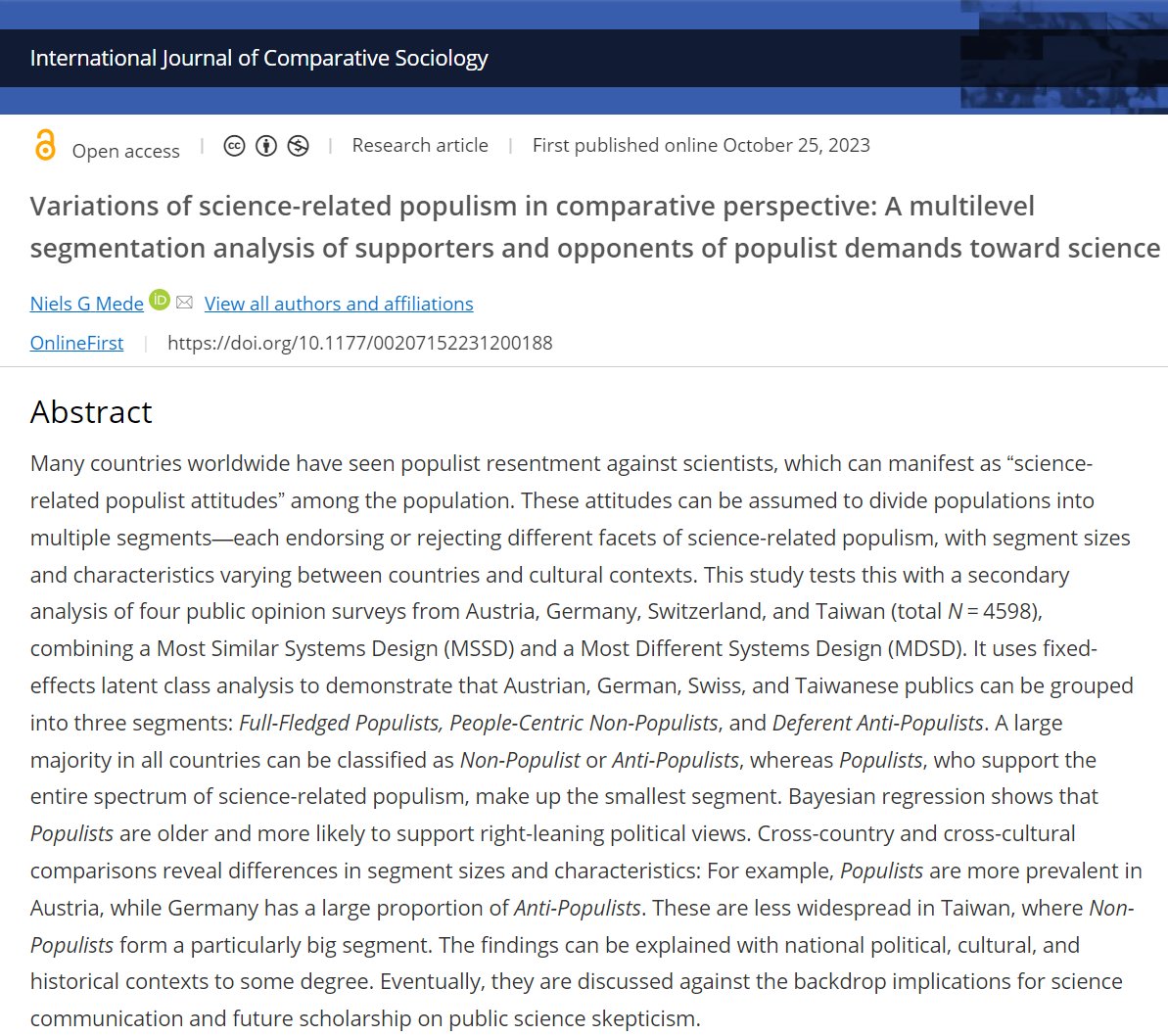
Lee de-Wit
@leedewit
Associate Prof in Political Psychology, Deputy Head of Dept @CambPsych. Fellow @TrinityHallCamb.
ID: 415921374
https://www.psychol.cam.ac.uk/people/lee-de-wit 19-11-2011 00:30:13
2,2K Tweet
1,1K Takipçi
1,1K Takip Edilen



🎉Congratulations to Jens Koed Madsen & Lee de-Wit who have been awarded a significant grant from the prestigious Templeton World Charity Foundation to study perceptions of source independence & polarisation. #research #grant #polarisation #psychology



What can Facebook friendships tell us about geographies of social and political (dis)trust? New research with William R Jennings DDS Gerry Stoker – ‘Social ties, trust and the geography of discontent’ out in @camjres (1/8) academic.oup.com/cjres/advance-…


🚨NEW PAPER 🚨 Never mind moral universals in 60 cultures, how about moral universals in 256 cultures?! 🧵 #moralityascooperation Human Relations Area Files @hraf755.bsky.social doi.org/10.1016/j.heli…


New paper 😃 With Cameron Brick (defunct account), Lee de-Wit and others, we argue behavioural sciences too frequently jump to conclusions of irrationality and bias - instead, we argue we should initially assume people are reasonable as a point of departure. LSE Psychological & Behavioural Science shorturl.at/Z93O2

"Behavioral science should start by assuming people are reasonable" Nice piece in TCS. Couldn't agree more sciencedirect.com/science/articl… Thx for linking to my work w/ Jan Koenderink & Joachim Krueger Jens Koed Madsen Lee de-Wit Peter Ayton Cameron Brick (defunct account) Laura de Molière Carla Groom


Great read on how we also can dislike factions WITHIN our own political party quite a lot too! By David Young and Lee de-Wit onlinelibrary.wiley.com/doi/10.1111/po…

🚨New article drop in PNAS Nexus, exploring the link between economic inequality and moralization – on Twitter (X) and around the globe! doi.org/10.1093/pnasne… Thanks to Brock Bastian, Paul van Lange, Drew Gorenz, Khandis Blake, Ph.D. and my excellent co-authors around the world!



Recently published by the British Journal of Social Psychology, Lee de-Wit and I ask "Can the manner in which we visualize data impact perceptions of political polarization?" doi.org/10.1111/bjso.1… Thanks to Colin Strong and Ipsos Cambridge University British Psychological Society BPS Social Psychology Section

Six months after passing my viva, I graduated from my PhD today! Thanks to my brilliant supervisor Lee de-Wit, my fantastic examiners Sander van der Linden and Mark Brandt, and the many many more from Dept of Psychology and beyond who helped me along the way!


🚨 As trust in science faces new challenges, our new study with @walraslaw Prashant Garg explores the impact of scientists' political expression on SM. Looking at 98K US scientists on Twitter, we observe their ideological polarization and test impact on public perceptions🧵


"[Labour’s pro-Corbyn and pro-Starmer factions] now show levels of mutual enmity that are slightly worse than between Leavers and Remainers" 🚨📊 NEW: David Young on the findings of his recent research on polarisation between factions within parties. ukandeu.ac.uk/labours-factio…
![UK in a Changing Europe (@ukandeu) on Twitter photo "[Labour’s pro-Corbyn and pro-Starmer factions] now show levels of mutual enmity that are slightly worse than between Leavers and Remainers"
🚨📊 NEW: <a href="/David_JYoung/">David Young</a> on the findings of his recent research on polarisation between factions within parties.
ukandeu.ac.uk/labours-factio… "[Labour’s pro-Corbyn and pro-Starmer factions] now show levels of mutual enmity that are slightly worse than between Leavers and Remainers"
🚨📊 NEW: <a href="/David_JYoung/">David Young</a> on the findings of his recent research on polarisation between factions within parties.
ukandeu.ac.uk/labours-factio…](https://pbs.twimg.com/media/GWN4SaqXkAEZloU.png)


🚨 New in Nature Communications! While many studies show that negativity drives online virality, we find that predictors of what people like and share can change over time, with ingroup solidarity showing significant viral potential during the war in Ukraine. (1/6) nature.com/articles/s4146…

Why do 9 in 10 Trump supporters think American values and prosperity are “under threat”? Polling from Lee de-Wit at Cambridge’s Political Psychology Lab and @Yougov reveals strong link between the US election result and concerns over economic and cultural instability. Learn why

